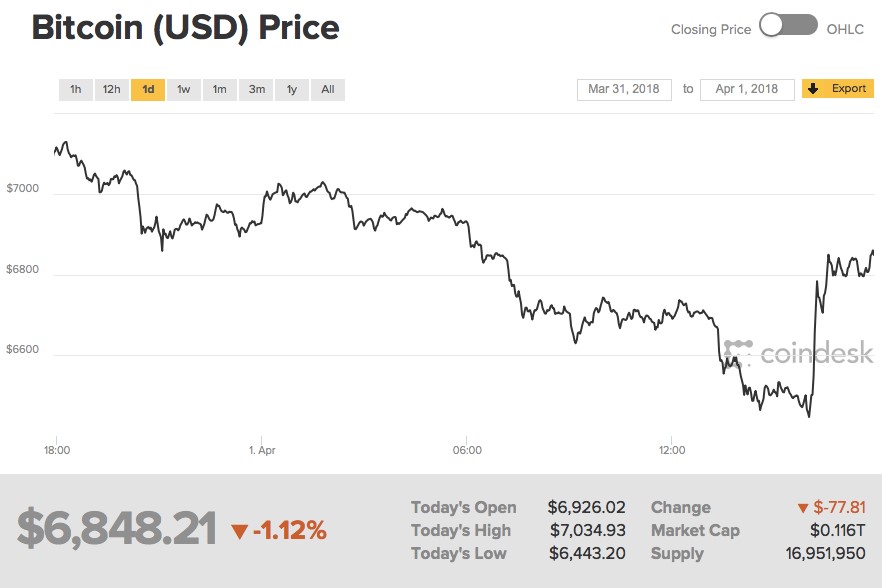
Bitcoin has been badly hammered in 2018, losing about 70 percent of its value in the first 3 months of the year. There's no doubt that bitcoin investors who took a ‘HODL’ approach when the currency was approaching 20k in late 2017 are deeply in the red and probably wondering when the nightmare will finally come to an end.
But if they’re feeling the heat, bitcoin miners are feeling it, too.
Investing in bitcoin for a speculator return is a pretty straight-forward business --you simply buy the digital coins then hope or pray that prices will shoot up at that you have enough time amid the crazy volatility to sell them before that changes.
Solving those fiendish algorithms that increase the size of the bitcoin pie for everyone, aka bitcoin mining, is not as easy, though.
Cryptocurrency miners use high-end, power-guzzling GPU hardware to solve equations within a block and receive block rewards in the form of digital tokens of the currency that's being validated.
Bitcoin mining is a business like any other, and needs to turn a profit to be worthwhile.
The profitability of a mining operation is not only determined by the price of the currency but also by the cost of the mining hardware, power consumption, efficiency of the hardware (how much power it consumes to perform a specific number of hashes) and fees charged by mining pools (if you are using one). Large mining hardware dissipate a lot of heat and therefore also incurs substantial cooling costs.
So, are bitcoin miners still making money? Not really.
Most bitcoin mining costs are fairly stable and not too hard to determine. The big wild card here is the price of bitcoin, since miners enter the red zone whenever prices fall dip below the break-even level.
Luckily for us, Wall Street has taken the trouble to work out bitcoin's break-even level.
According to Tom Lee of Fundstrat Global Advisors, bitcoin's breakeven mining costs clock in at $8,038, implying that miners are currently losing ~$1,190 for every bitcoin mined, based on 1 April prices.
If you have set-up a mining rig at home, there are several online calculators available to work out your profits.
Let's assume you own the most powerful and efficient mining rig-- the AntMiner S9 --at a cost of $2,000, capable of performing 13.5 Tera-hashes/second, consumes 0.098 Watts/Gigahash(~1,400W at full power) and your mining pool charges you 2.5 percent.
Using this 99Bitcoin calculator and assuming a power cost of $0.06/kWh, you will lose ~$380 after one year of mining at current bitcoin prices.
Losses get worse as you lower the mining period due to high hardware costs. Your breakeven costs would be $7,842--all else remaining constant, implying again that you would be losing a ton of money at current bitcoin prices.
Last man standing
However, it’s important to note that these breakeven costs only apply to small mining operations. Power costs have a large bearing on mining costs, and miners with access to cheap power can continue mining profitably at much lower prices. Assuming everything else remains constant, you would need to lower your power costs to $0.028 just to breakeven at current prices.
That’s why Chinese miners are likely to be the last men standing after everybody else calls it quits.
Miners in the country have access to cheap hydropower and also a big incentive to send money overseas to evade restrictive government controls. Bitcoin prices would probably have to plunge as low as $3,000-$4,000 before Chinese operators decided to throw in the crypto towel.

No comments:
Post a Comment
Note: Only a member of this blog may post a comment.